War on Waste: Craig Reucassel reveals the shocking truth about our bananas
MOST Aussies don’t know for every banana they eat, there is an incredible fact about the ones that didn’t make it to supermarkets.
AS CRAIG Reucassel watches huge bunches of bananas being separated, chopped up and then dumped in a staggering mountain he can’t help but say “this is just nuts”.
The Chaser comedian has turned his focus to Australia’s waste and the sheer scale of how much good food is dumped before it even reaches supermarket shelves was one of the most surprising facts he unearthed.
In his new documentary series War On Waste, Reucassel reveals that up to 40 per cent of bananas are thrown away by farmers because they don’t fit standards set by supermarkets. Basically they are too bent, too straight, too long, too short, too fat or too thin.
“I was shocked by the waste,” Reucassel told news.com.au.
“These bananas are highly edible but they don’t fit the cosmetic look. If they are too curved they are thrown out, if they are not curvy enough they are thrown out.
“It’s really hard being a banana these days.”
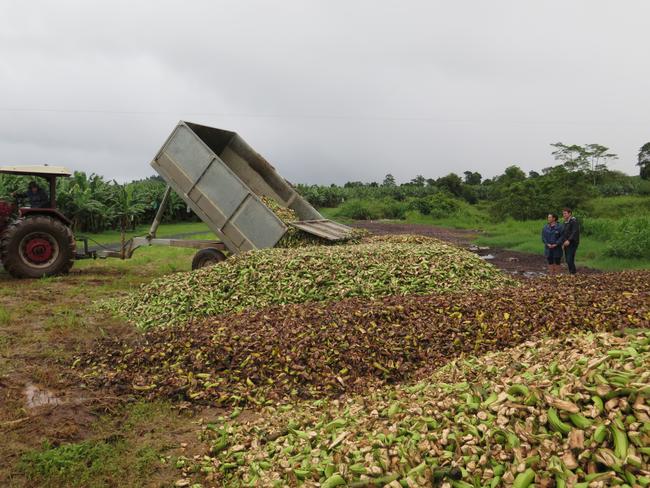
Reucassel said the thing that surprised him most was the sheer volume of fruit and vegetables that were simply tossed out, despite the months of work that goes into growing them.
“It’s very hard to make fruit or vegetables come out in a perfect way,” he said. “I saw a zucchini that was too big to be sold, because of one extra day’s rain, it’s crazy.
“I think it’s particularly sad when you think about how many people struggle to get food in Australia (and the world) that so much edible food is just chucked.”
And it’s not just farmers who are throwing out food.
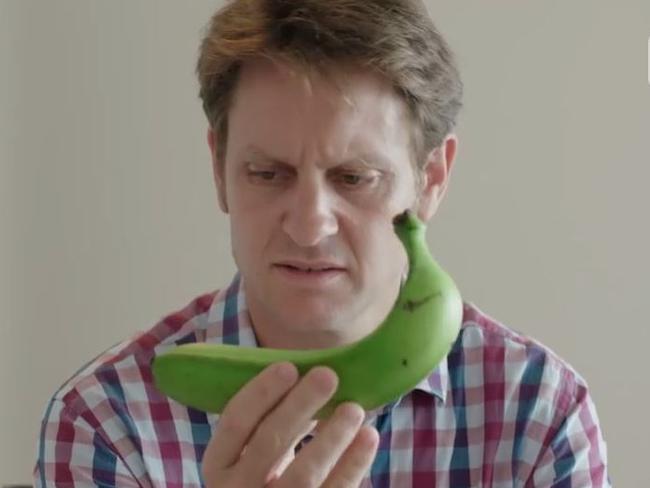
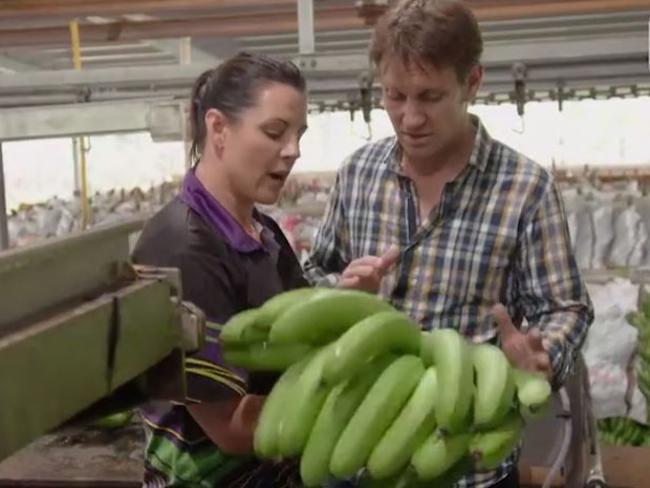
Reucassel found that on average shoppers threw out the equivalent of one in five shopping bags worth of food at home. This is generally food that people buy but don’t get a chance to eat.
It costs households about $3500 every year.
Reucassel confronts shoppers with this “outrageous” waste during the show, taking groceries out of their trolleys and driving a truck full of one year’s food waste into a carpark to illustrate how much food people are throwing away.
Just how much is the average Aussie family throwing away? The results are... 😮😮 #WarOnWasteAU @craigreucassel pic.twitter.com/xi6tB6MNzW
— ABC TV Australia (@ABCTV) May 15, 2017
Reucassel also confronts politicians with a giant ball of plastic bags and fills a Melbourne tram with disposable coffee cups (which generally cannot be recycled) to get people thinking about the embarrassing amount of rubbish they send to landfill.
“I think a lot of people either don’t think about it or don’t know how to deal with it,” Reucassel said.
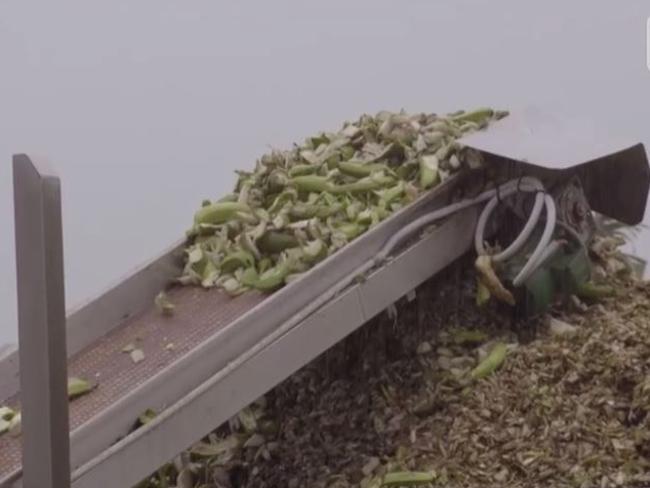
“We have a coffee culture in Australia built around takeaway coffee cups, but it’s not like that in all countries, this is a new waste stream that we are not dealing with.”
Australia’s waste is growing at twice the rate of its population and the country is now one of the worst in the developed world when it comes to generating rubbish.
During the series Reucassel helps the residents of one Sydney street to confront their rubbish problem and said once people started talking and thinking about it, they found plenty of solutions.
“We are very much aimed at simple solutions here, it’s not massively hard, it just takes a bit of awareness,” he said.
This could be as simple as separating soft plastics and bringing your own coffee cup to cafes.
“It’s very difficult to be a zero waste person but for most families it’s very easy to halve the size of what’s going into landfill from their bin,” he said.
RELATED: My year of trying to live zero waste
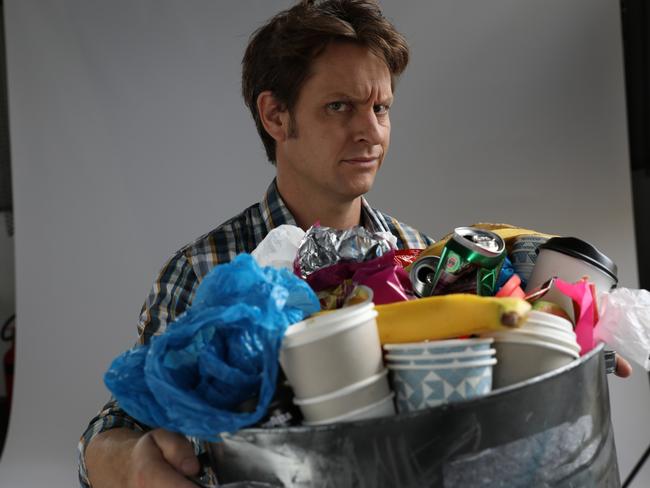
Reucassel said Australia used to be a world-leading nation when it came to kerbside recycling but has now fallen behind.
There is a #BanTheBag campaign to get state governments in New South Wales, Victoria and Western Australia to ban plastic bags and Reucassel said it was also important to look at states that already have a ban because there was a lot of loopholes.
While politicians have to play a role in changing legislation, Reucassel said it was also up to supermarkets and consumers to create change.
He is running a #SizeDoesntMatter campaign to get supermarkets to loosen their cosmetic standards on fruit and vegetables.
“I think if people are aware it’s happening and tell supermarkets they are willing to eat or buy these bananas that are not making it into shops, they are more likely to loosen these cosmetic standards and we can rescue more foods from farms.”
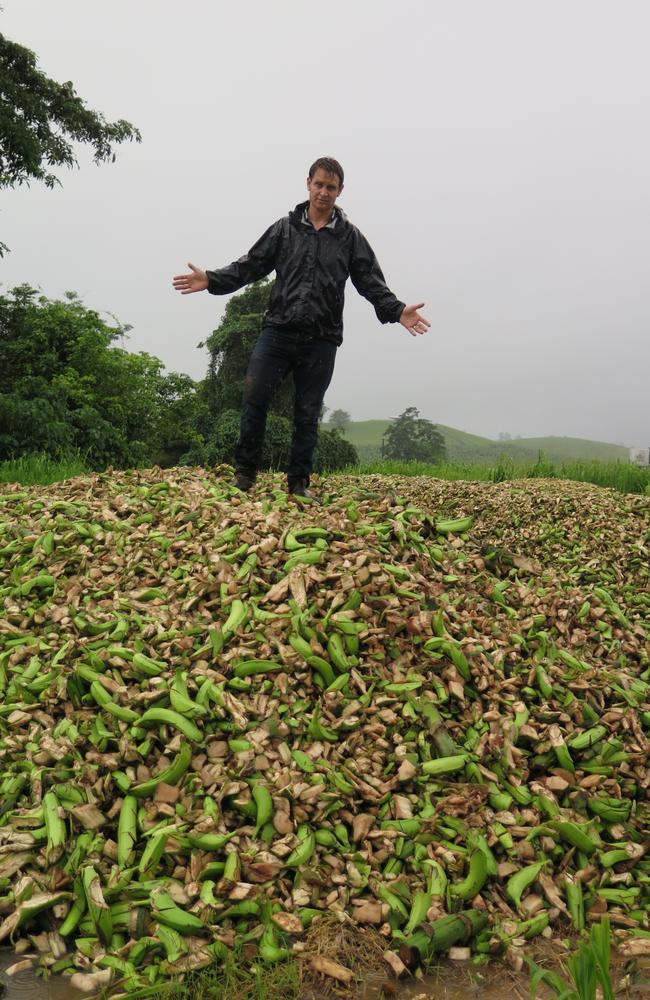
The War on Waste screens on ABC on Tuesdays for the next three weeks starting tonight, May 16 at 8.30pm.



